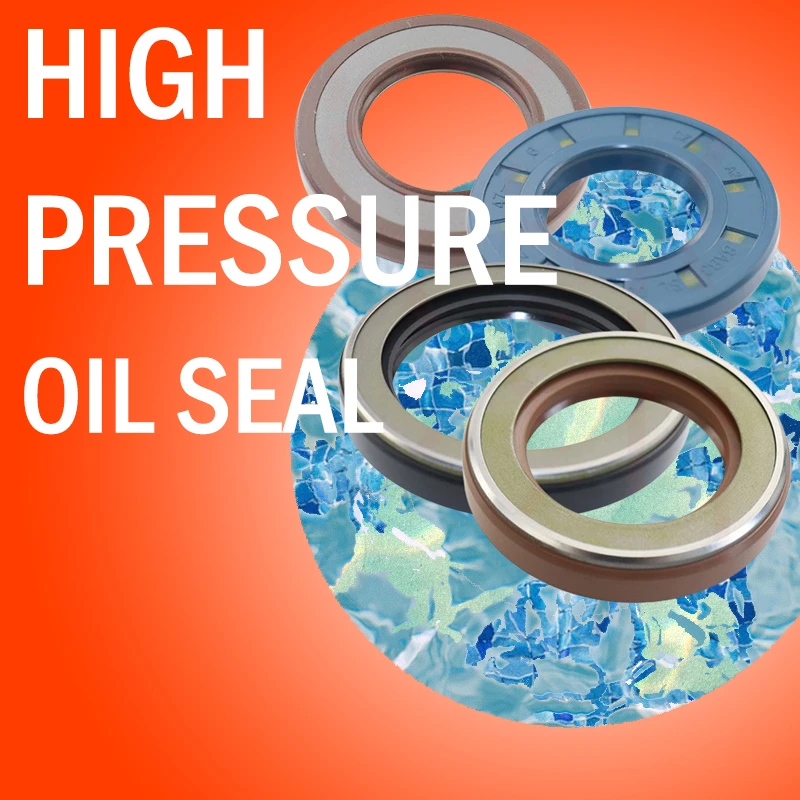Nov . 24, 2024 17:01 Back to list
radial oil seal
Understanding Radial Oil Seals Essential Components for Fluid Management
Radial oil seals, often referred to as radial shaft seals, are crucial components in machinery and automotive applications. Their primary function is to retain lubricants and exclude contaminants from entering the system, ensuring smooth operation and longevity of mechanical parts. In this article, we will explore the design, types, applications, and maintenance considerations of radial oil seals, highlighting their importance in various industries.
Design and Structure
Radial oil seals are typically composed of three main parts the sealing lip, the body, and a spring. The sealing lip makes direct contact with the shaft, creating a static seal that prevents the escape of oil. It is often made from elastomers like nitrile rubber, fluorocarbon, or silicone, offering chemical resistance and flexibility. The body of the seal, which is usually made from metal or reinforced synthetic materials, provides structural integrity. A spring may also be included to maintain consistent pressure against the shaft, enhancing the sealing efficacy.
Types of Radial Oil Seals
There are several variations of radial oil seals, each designed to meet specific requirements
2. Lip Seals Featuring a single or multiple sealing lips, lip seals are designed for high-speed applications and can accommodate slight misalignments.
3. Dual-Lip Seals These seals feature an additional lip designed to provide extra protection against contamination and enhance sealing performance in harsh environments.
4. Outside Diameter Seals Used in specific applications where the external surface requires sealing against dirt and moisture, these seals provide an effective barrier.
5. Specialty Seals Designed for unique applications, these may include features such as enhanced temperature resistance, abrasion resistance, or specific chemical compatibility.
Understanding the differences between these types is crucial for selecting the appropriate seal for a given application, as improper choice can lead to seal failure, resulting in leakage and potential equipment damage.
Applications
Radial oil seals are widely utilized across various industries
radial oil seal

- Automotive In vehicles, radial oil seals are found in engines, transmissions, and differentials. They play a critical role in maintaining the oil system's integrity, thereby enhancing engine performance and fuel efficiency.
- Industrial Machinery In manufacturing equipment, these seals prevent grease and oil leaks, ensuring that machinery operates efficiently and extends its operational lifespan.
- Aerospace Radial seals in the aerospace industry are engineered to handle extreme conditions, including high temperatures and pressures. They safeguard critical components from oil leaks and maintain reliability during flight.
- Marine Applications In boats and ships, oil seals help prevent seawater intrusion into the machinery, ensuring smooth engine operations and reducing the risk of catastrophic failures.
Maintenance Considerations
To ensure the long-term performance of radial oil seals, regular maintenance is vital. Here are some best practices
1. Inspection Regularly check the seals for signs of wear, such as cracks, deformation, or hardening. Early detection of issues can prevent more severe damage.
2. Installation Proper installation is critical. Ensure correct orientation and alignment during installation to prevent premature failure.
3. Environmental Considerations Keep seals away from excessive heat, harsh chemicals, or extreme pressures, which can compromise their integrity.
4. Lubrication Maintain appropriate lubricant levels to reduce friction and wear, as insufficient lubrication can lead to seal failure.
5. Replacement Replace seals as part of routine maintenance schedules, especially in high-wear applications.
Conclusion
Radial oil seals are essential components in many mechanical systems, playing a pivotal role in fluid management and equipment reliability. By understanding their design, types, applications, and maintenance needs, engineers and technicians can ensure optimal performance and longevity of the equipment they manage. In a world driven by efficiency and performance, investing in quality radial oil seals and maintaining them properly is crucial for operational success.
-
TCN Oil Seal Metal Ring Reinforcement for Heavy Machinery
NewsJul.25,2025
-
Rotary Lip Seal Spring-Loaded Design for High-Speed Applications
NewsJul.25,2025
-
Hydraulic Cylinder Seals Polyurethane Material for High-Impact Jobs
NewsJul.25,2025
-
High Pressure Oil Seal Polyurethane Coating Wear Resistance
NewsJul.25,2025
-
Dust Proof Seal Double Lip Design for Construction Equipment
NewsJul.25,2025
-
Hub Seal Polyurethane Wear Resistance in Agricultural Vehicles
NewsJul.25,2025
-
The Trans-formative Journey of Wheel Hub Oil Seals
NewsJun.06,2025
Products categories
















